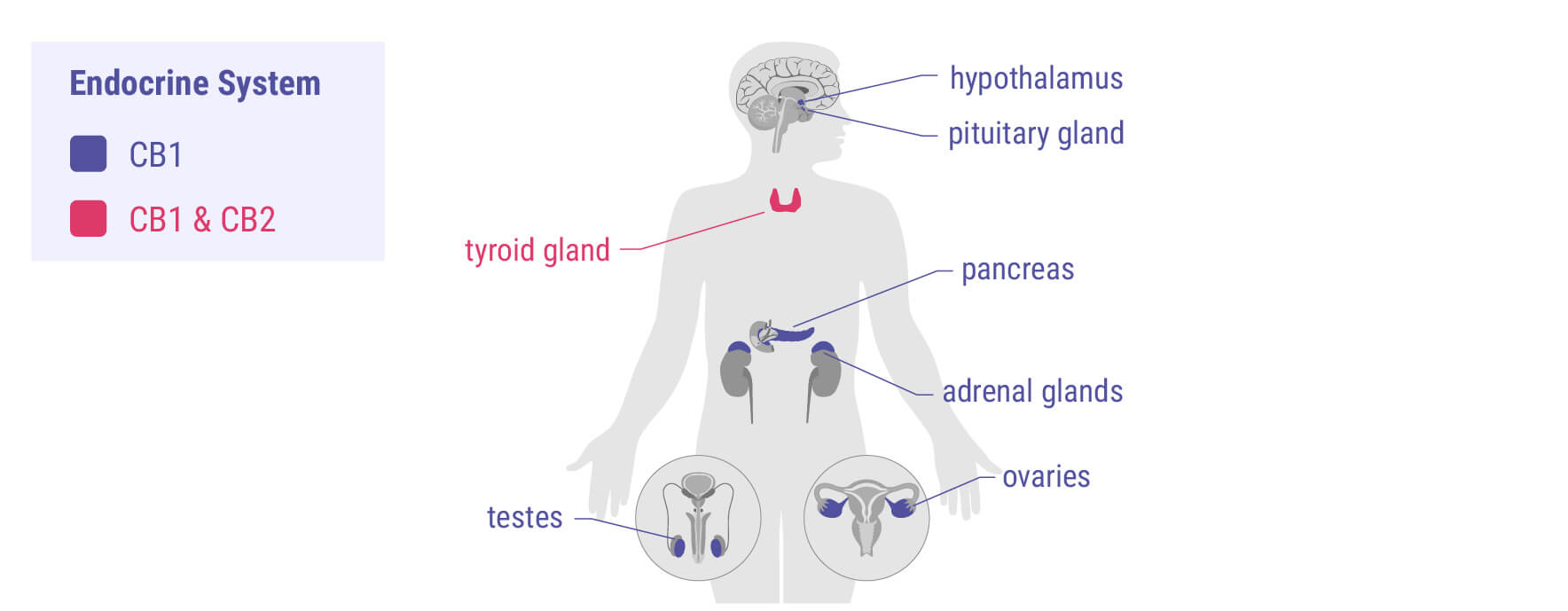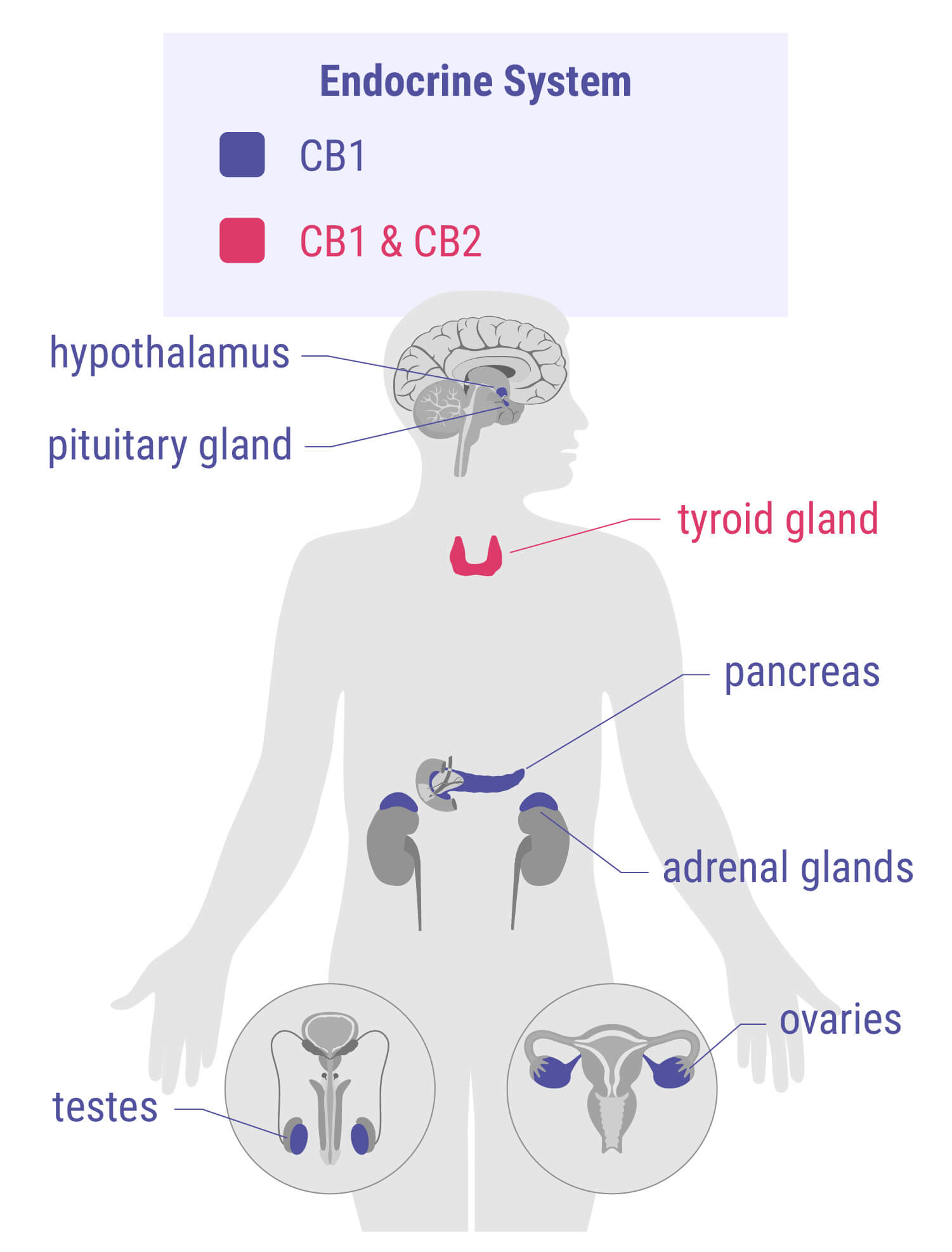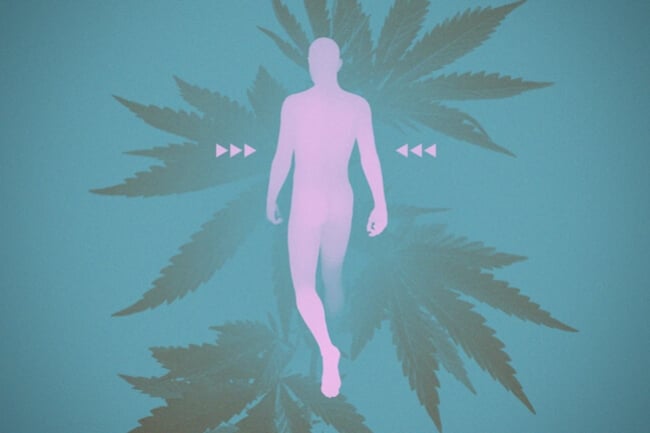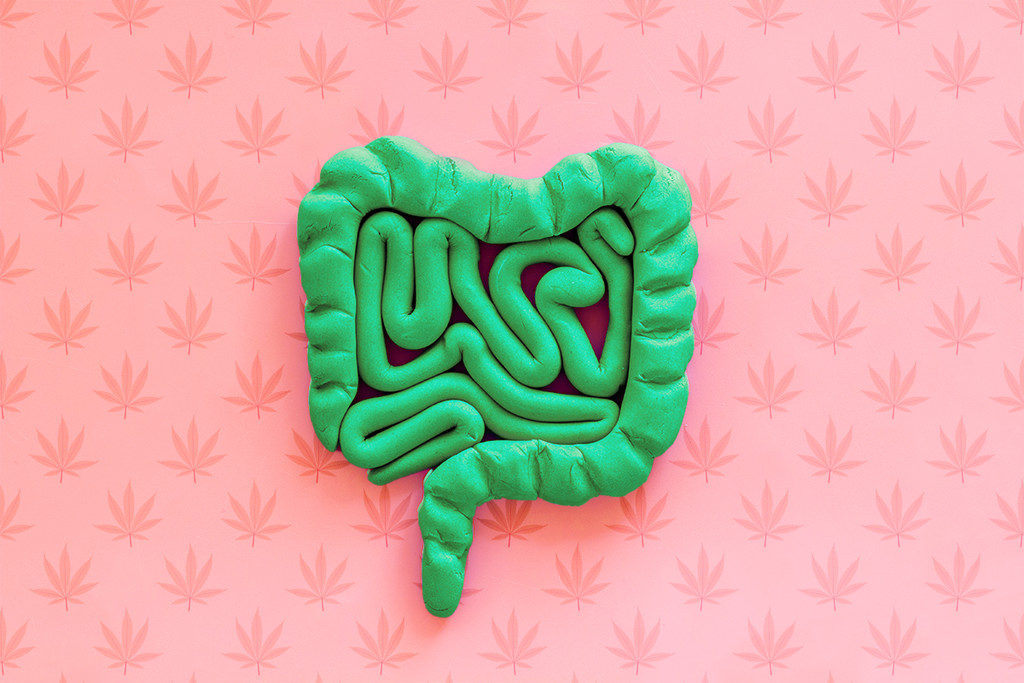.

The Potential of Cannabis and CBD for Endocrine Disorders
The endocrine system uses signalling molecules (hormones) to keep our bodily systems in balance and working optimally. A disruption in this delicate balance can cause a variety of endocrine disorders, and the long list of symptoms that accompany them. Ongoing studies are exploring the relationship between cannabis and the endocrine system.
Contents:
As we uncover the full scope of the endocannabinoid system, cannabis continues to be examined for its effects on this and other biological systems and processes. Presently, researchers are exploring the herb’s relationship with endocrine disorders. The endocrine system plays many vital roles in human development, from before we are born through to our eldest years.Continue reading to learn more about the endocrine system, how cannabis influences it, and whether THC and CBD might assist endocrine disorder treatment in the future.
What Is the Endocrine System?
The endocrine system consists of glands that manufacture hormones. These regulatory substances are essentially the way many of our body's tissues communicate. When the hormones are released into the systemic circulation and transported to distant areas of the body, it is called the endocrine signalling system. On the other hand, the paracrine signalling system is the system in which hormones act on nearby cells.
Take the hypothalamic–pituitary–adrenal (HPA) axis, for example. The interaction between these three glands dictates a neuroendocrine mechanism that mediates the effects of stress.It all starts with the release of corticotropin-releasing hormone (CRH) in the hypothalamus, on the undersurface of the brain, and ends in the release of the stress hormones adrenaline, noradrenaline, and cortisol from the adrenal glands situated above the kidneys.
Glands themselves are a specialised group of cells—sometimes forming organs—that produce hormones. Overall, a healthy endocrine system helps the body communicate with different parts of itself properly, resulting, for example, in healthy bones, adequate energy levels, or a balanced mood.
-
Why the Endocrine System Is Important
The endocrine system plays a multifaceted role in human biology. Think of the vital role communication plays in human relationships. Without it, misunderstandings run rampant and things quickly break down. We can apply this logic to the body. Proper communication keeps things running smoothly.
The overarching goal of the endocrine system is to maintain homeostasis—a state of biological balance that keeps us alive and functional. We encounter stimuli daily that challenge this balance, and the endocrine system helps to pull things back to the middle using multiple regulation mechanisms.
For example, beta cells in the pancreas react to a rise in blood sugar levels by releasing insulin, a hormone that instructs muscle, liver, and fat cells to store glucose. A negative feedback loop starts when blood sugar levels begin to drop., which causes cells in the pancreas to stop the release of insulin and start the release of glucagon, driving the return to homeostasis.
Even the endocrine system regulates itself using both negative and positive feedback loops. Usually, the body uses negative feedback loops to keep homeostasis. For example, an increase of thyroid hormones—T3 and T4—in the bloodstream causes the HPA axis to down-regulate the production of these hormones to prevent damage. If this system becomes unbalanced, it can cause health problems such as hyperthyroidism. An example of the positive feedback loop, which is quite an unusual regulation mechanism, is what occurs during breastfeeding. Sucking on the nipple causes prolactin to be secreted in the pituitary gland. This, in turn, causes the mammary gland to produce more milk as the stimulation to the nipple increases.
There are many other examples of how the endocrine system helps to constantly bring the body back into balance, including the regulation of body temperature, appetite, lactation, ovulation, and even childbirth.


How the Endocrine System Works
Now that you know the overarching goal and function of the endocrine system, let’s take a look at how some of the key glands work. Then, we’ll explore the phenomenon of endocrine disorders and see if cannabis might help to manage them.
Endocrine Glands
Numerous glands make up the endocrine system. They serve as nodes in a network, churning out vital signalling molecules that catalyse physiological changes when released into the systemic circulation. Check out the role of four crucial endocrine glands below.
-
Thyroid Gland
Located in the neck, this butterfly-shaped gland produces key hormones that help to regulate metabolism, including:
| Triiodothyronine (T3) | Thyroxine (T4) |
| Triiodothyronine (T3) | Thyroxine (T4) |
In helping to control metabolic health, the thyroid gland fulfils the following functions:
| Regulates metabolic rate | Controls part of the heart function | Contributes to brain development and normal function | Maintains bone health |
| Regulates metabolic rate | Controls part of the heart function |
| Contributes to brain development and normal function | Maintains bone health |
-
Pituitary gland or hypophysis
Referred to as the “master gland”, this bean-shaped organ resides at the base of the brain behind the bridge of the nose, directly below the hypothalamus. Although tiny, this powerhouse gland produces many important hormones, including:
| Adrenocorticotropic hormone (ACTH) | Follicle-stimulating hormone (FSH) | Luteinizing hormone (LH) | Growth hormone (GH) |
| Prolactin (PRL) | Thyroid-stimulating hormone (TSH) | Oxytocin | Antidiuretic hormone (vasopressin) |
| Adrenocorticotropic hormone (ACTH) | Follicle-stimulating hormone (FSH) |
| Luteinizing hormone (LH) | Growth hormone (GH) |
| Prolactin (PRL) | Thyroid-stimulating hormone (TSH) |
| Oxytocin | Antidiuretic hormone (vasopressin) |
These signalling molecules cause cascades that impact many parts of the body, including the ovaries and testicles, hair, and kidneys and even behaviour and social interaction.
| Controls general metabolism | Organs’ maturation and development | Involved in reproduction | Controls the function of most other endocrine glands |
| Controls general metabolism | Organs’ maturation and development |
| Involved in reproduction | Controls the function of most other endocrine glands |
-
Pineal Gland
Referred to as the “seat of the soul” by Rene Descartes, the pineal gland is understudied, and several aspects of its functions remain a mystery. Esotericists have referred to the gland as the “third eye”, and new-age culture often invokes it as an endogenous source of the hallucinogen DMT. However, scientific evidence does not yet support[1] the release of DMT from the human pineal gland, although researchers have found the molecule in the pineal gland of rats[2].
However, mysticism aside, the pineal gland plays an extremely important role in the body, especially when it comes to biorhythms. Located deep in the brain where the two hemispheres join, this gland has a length of around 0.8cm and weighs only 0.1g. Despite its small size, it produces these important hormones:
| Melatonin | Serotonin |
| Melatonin | Serotonin |
The production of these chemicals gives the pineal gland the following functions:
| Helps to regulate sleep and wakefulness (circadian rhythm) | Positively impacts heart and blood pressure | May help to regulate mood |
| Positively impacts heart and blood pressure | May help to regulate mood | ||||||
| Helps to regulate sleep and wakefulness (circadian rhythm) | |||||||
|---|---|---|---|---|---|---|---|
-
Adrenal Gland
Located on top of both kidneys, these triangular-shaped glands make and release hormones that are tasked with regulating our response to stress, blood pressure or normal development. Among others, the adrenals produce the following hormones:
| Cortisol | Aldosterone | Epinephrine (adrenaline) | Norepinephrine (noradrenaline) |
| Cortisol | Aldosterone |
| Epinephrine (adrenaline) | Norepinephrine (noradrenaline) |
Equipped with the ability to synthesise these chemicals, the adrenals catalyse myriad physiological processes, including:
| Controlling the use of fats, proteins, and carbs | Suppressing inflammation | Contributing to sexual development | Controlling blood pressure |
| Controlling the use of fats, proteins, and carbs | Suppressing inflammation |
| Contributing to sexual development | Controlling blood pressure |
Endocrine Disorders
The endocrine system plays a crucial role in maintaining health and proper bodily functions. But what happens when issues arise and this signalling network becomes disrupted? Malfunctions can lead to endocrine disorders. When a gland produces too much or too little of a specific hormone, and when this cannot be properly controlled by the feedback loops, the body struggles to maintain homeostasis.
Several different issues can alter hormone levels, including:
| Gland tumours or lesions | Infection | ||||||
| Hormone production failure and subsequent signalling cascade interruption | |||||||
|---|---|---|---|---|---|---|---|
| Gland tumours or lesions | Infection | ||||||
| Hormone production failure and subsequent signalling cascade interruption | |||||||
|---|---|---|---|---|---|---|---|
-
Symptoms of Endocrine Disorders
Many different types of endocrine disorders exist, and each is associated with its own set of symptoms. Below are some of the most common:
| Adrenal insufficiency | Muscle weakness, loss of appetite, weight loss, abdominal pain |
| Cushing’s disease | Red and puffy face, fat buildup on the back of the neck, skin that bruises easily |
| Hyperthyroidism | Nervousness, anxiety, irritability, mood swings, sleep issues |
| Hypothyroidism | Tiredness, weight gain, slow movements and thoughts, brittle hair and nails |
| Polycystic ovary syndrome (PCOS) | Irregular periods, weight gain, oily skin or acne, difficulty getting pregnant |
| Diabetes mellitus | Increased thirst, extreme hunger, fatigue, blurred vision, frequent urination, neuropathic pain, muscle cramps |
| Adrenal insufficiency and Addison's disease | Muscle weakness, loss of appetite, weight loss, abdominal pain, blood hypotension |
| Cushing’s disease | Red and puffy face, fat buildup on the back of the neck, skin that bruises easily |
| Hyperthyroidism | Nervousness, anxiety, irritability, mood swings, sleep and alimentary issues |
| Hypothyroidism | Tiredness, weight gain, slow movements and thoughts, brittle hair and nails |
| Polycystic ovary syndrome (PCOS) | Irregular periods, weight gain, oily skin or acne, difficulty getting pregnant |
| Diabetes mellitus | Increased thirst, extreme hunger, fatigue, blindness, frequent urination, neuropathic disorders, renal insufficiency |
Cannabinoids and the Endocrine System
Where does cannabis enter the picture? If you know anything about the endocannabinoid system (ECS), you’ll know how broadly constituents from cannabis can affect the body. Indeed, the ECS features a net of substances and receptor sites located, among others, on endocrine organs such as the hypothalamus, pituitary, and thyroid.
Much like the endocrine system, the ECS strives to maintain homeostasis. It assists in regulating bone mass, appetite, mood, neurotransmitter firing, and more. Notably, cannabinoids from the cannabis plant influence the ECS either by directly binding to its receptors or by indirectly altering the levels of our own endocannabinoids.
But how might cannabinoids help to counter endocrine system disorders? We don’t know for sure, and we probably won’t for some time. Tightly controlled clinical trials are required to gain an evidence-based understanding. However, ongoing studies are investigating how THC and CBD specifically might target some symptoms of such conditions.


-
THC and the Endocrine System
While some users don’t appreciate the effects or suffer some side effects of getting high, others thoroughly enjoy the experience and find that THC helps to improve their quality of life.
For instance, some may speculate that THC's role in stimulating appetite, a trait that might help to counter the loss of appetite present in some endocrine diseases (such as thyroid disorders), could be medically interesting. Cannabis-based medicines such as Marinol, which mimics the effects of THC, are currently used to boost appetite[3] in patients with approved conditions.
Researchers are also exploring how THC might positively impact mood. We know that, in the short term, the molecule causes a surge in dopamine in the brain, which results in euphoria and relaxation. However, long-term use may lead to a blunting of this effect[4]. As such, more studies are needed to assess the link between cannabis and mood in patients with endocrine disorders.
What about the sensations of chronic pain that go hand in hand with some endocrine disorders? Cannabis scientists are examining how THC acts on pain signalling pathways[5].
-
CBD and the Endocrine System
CBD, or cannabidiol, offers a different suite of effects to THC. Whereas THC binds directly to the receptors of the endocannabinoid system, CBD works in many different manners. It has a low binding affinity with these sites but manages to temporarily elevate levels of the endocannabinoid anandamide by other methods. Because anandamide binds to the same sites as THC, it produces similar, albeit much less euphoric, effects. Known by some as the “bliss molecule”[6], studies are probing anandamide for its impact on mood and mental well-being.
CBD also binds directly to transient receptor potential vanilloid 1 (TRPV1), a proposed "expanded ECS" cannabinoid receptor. This site plays a role in pain detection, and studies are currently determining if CBD could reduce pain through this mechanism[7].
Studies are also assessing CBD’s effects on anxiety, a symptom that plagues those with endocrine disorders such as hyperthyroidism. So far, researchers have tested the cannabinoid[8] on human subjects with generalised anxiety. Additional comprehensive clinical trials will hopefully elucidate how the cannabinoid impacts the symptom in those with endocrine disorders.
Cannabis: A Future Treatment for Endocrine Disorders?
Will cannabis play a role in the future of endocrine disorder treatment? Perhaps. It’s too early to say at present. Ongoing studies will reveal the extent to which the constituents of the herb can help to tackle the symptoms of certain disorders, and if cannabis might strike at the root of some of these conditions.
However, setbacks are inevitable along the way. While cannabis might be of benefit, some data suggest that the herb can also disrupt the endocrine system[9] under some circumstances. Researchers are now tasked with finding ways to utilise cannabis to benefit endocrine system function without negatively impacting the delicate balance of cascading chemicals.
RQS, the author, and the reviewer are not responsible for the use of information in this article.
- SAGE Journals: Your gateway to world-class journal research https://journals.sagepub.com
- 'Mystical' psychedelic compound found in normal brains of rats https://www.sciencedaily.com
- Marinol https://www.drugs.com
- The effects of Δ9-tetrahydrocannabinol on the dopamine system https://www.ncbi.nlm.nih.gov
- Cannabinoids and Pain: New Insights From Old Molecules https://www.ncbi.nlm.nih.gov
- Brain activity of anandamide: a rewarding bliss? | Acta Pharmacologica Sinica https://www.nature.com
- CBD Effects on TRPV1 Signaling Pathways in Cultured DRG Neurons | JPR https://www.dovepress.com
- Cannabidiol as a Potential Treatment for Anxiety Disorders https://www.ncbi.nlm.nih.gov
- Marijuana, phytocannabinoids, the endocannabinoid system, and male fertility | SpringerLink https://link.springer.com






































